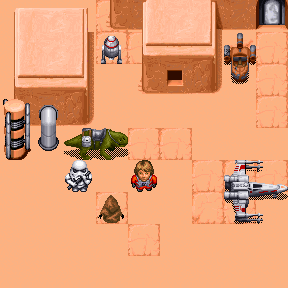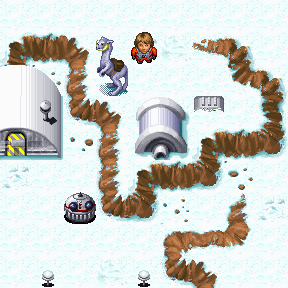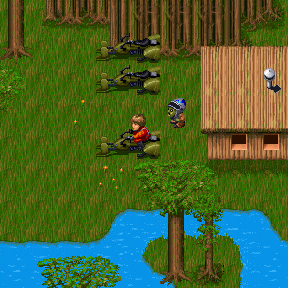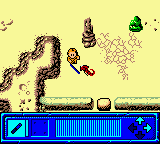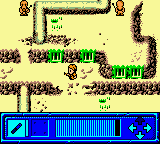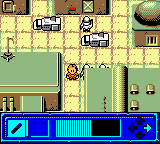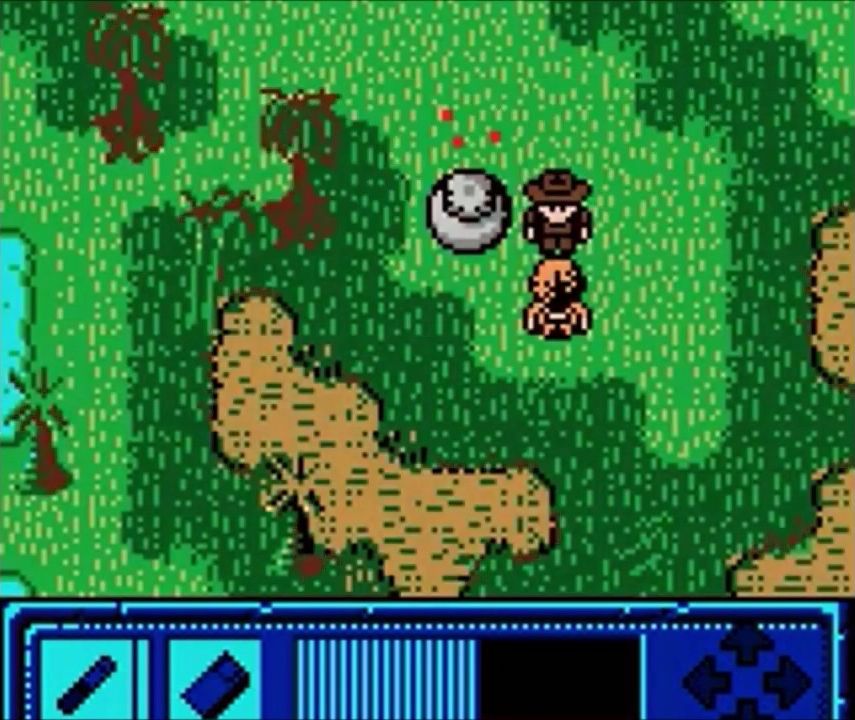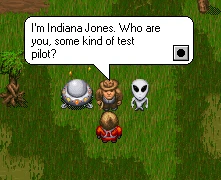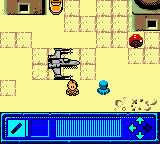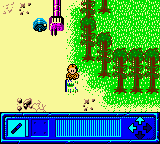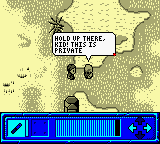Yoda Stories
Info & History
HISTORY
"Infinitely Replayable (Goodbye Solitaire!)"
Yoda Stories was the immediate successor to Indy's Desktop Adventures, and much of that game's history applies here. Released on the 12th of March, 1997, the game sought to take the original Indy title and expand upon it - More locations, enemies, items, vehicles... More everything! Gone were the jungles of Central America. Instead, players traveled to three distinctly different locales - Desert, jungle and ice planets awaited those who were ready to take on a mission from Yoda on the swampy planet of Dagobah. Engine improvements made the game a little less predictable compared to Indy's outing. Midi jingles were replaced with sampled snippets of real Star Wars music. Even the common complaint of not being able to attack diagonally with Indy's starting whip was addressed, with Luke's lightsaber attacking in an arc right off the bat.
"I'm very proud of both of these games, especially Yoda. Figuring out how to do algorithmically-driven puzzles and stories was a genuine accomplishment. I still play them now and then."
-Hal Barwood, from an interview with Indymag
-Hal Barwood, from an interview with Indymag
Yoda Stories was more popular than its predecessor, being both more fondly remembered by its target audience & selling better overall... Not that the reviews of the time would clue you in to that. Much like the game that came before, many misguidedly compared Yoda Stories to pieces of Star Wars media that a simple Solitaire-killer could never hope to come close to rivaling. While it was an all-time hit with children bored in class and hardly-working businessmen alike, Yoda Stories' name was nonetheless dragged through the mud by critics.
"LucasArts' Desktop Adventure series has claimed another victim: this time it's Star Wars."
-Robert Coffey, Gaming Computer World Issue 155
-Robert Coffey, Gaming Computer World Issue 155
"Too bad we didn't make some more of these things."
-Hal Barwood, from an interview with Indymag
-Hal Barwood, from an interview with Indymag
THE GAME BOY COLOR PORT
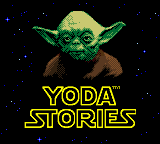
In December 1999, LucasArts released Yoda Stories on the Game Boy Color, taking the already-lightweight game and compressing it down to fit on the handheld screen.
While its gameplay was in many ways identical to that of its PC counterpart, the controls of the Game Boy did not lend themselves well to the Mouse-centric design of the original Desktop Adventures title. Movement was unreliable - Luke likes to automatically move around corners, which is far easier to steer with more intricate mouse control.
Whereas the computer version's strength was in its randomly-generated content, this was lost in the port. It had to be pared down to hold no more than 15 pre-determined levels. While these did go through every mission type the PC game had to offer (thus containing the "whole story"), its replayability suffered significantly. This also meant there was no way to change how long a game should last, or how difficult it would be.
Furthermore, the low-res graphics that were already a point of ridicule on PC had to be squashed down even more, and while it gave the game a cutesier Zelda-esque look, it did nothing to stave off the reviewers' scorn.
Funnily enough, the worst part of Game Boy Yoda Stories turned out to be its very grating rendition of the Star Wars theme that would loop ad nauseum for the entire duration of play with no way of turning it off. Whether on the title screen or in the caves of a foreign planet, the high-pitched tune would warble through the speaker all the same, utterly drowning out the digitized sound effects that were otherwise of unexpectedly high quality for the Game Boy at the time.
Fun Fact: As Yoda Stories lacked any kind of concrete "ending", the Indiana Jones easter egg from the PC version was placed at the end of the adventure.
Though Yoda Stories would have made an ideal mobile game, it was sadly a good twenty years too early. While it would have thrived in today's Mobile App market, the handhelds of the time were simply not ready to handle what it tried to do, and the Desktop Adventures would have faded into obscurity were it not for the big properties that had tied their names to them.
Gamespot cited the Game Boy Color port of Yoda Stories as "possibly the worst Star Wars game ever produced."
"Unfortunately, one second after providing Luke with forward momentum, the game's similarities to a dung heap become clear."
-Frank Provo, Gamespot Review
-Frank Provo, Gamespot Review
Yoda Stories, like Indy's Desktop Adventures before it, would go on to receive low-to-middling scores on review sites across the board despite its success. It would be the last entry in the Desktop Adventures series until LucasArts' closure by Disney in 2013.
Hal Barwood went on to design the 1999 game Indiana Jones and the Infernal Machine, receiving generally favorable reviews.
Paul LeFevre, credited with programming the original Desktop Adventures engine, also worked on The Infernal Machine as Lead Programmer.
THE STORY
Welcome to YODA STORIES, the second game in LucasArts' Desktop Adventure series! As the player, you are Luke Skywalker. At the start of each game, you must search out Yoda in the swamps of Dagobah, and consult with him. He knows where trouble is brewing, and he will devise a test for you. He will also supply the first item you need to get started. Then it's up to you to explore, trade, and fight your way through exotic terrain to meet Yoda's challenge.
In your adventures you will encounter Imperial stormtroopers and barbaric Sand People, dangerous aliens and deadly droids, and many other strange and bizarre creatures inhabiting the Star Wars Universe. Before you're done, you will learn the mysterious ways of the Force, and may even confront the temptations of the dark side, embodied in the malevolent guise of Darth Vader, Dark Lord of the Sith!
CREDITS
The Yoda Stories Team
Project Leader, Story & Game Design - Hal BarwoodProject Leader, Lead Artist & Game Design - Tom Payne
Lead Programmer & Game Design - Mark Crowley
Zone Design - Rachael Bristol
Zone Design - Jesse Clark
Additional Art - Martin Yee
Lead Tester - Randy Tudor
Original Desktop Adventures Engine & Additional Programming - Paul LeFevre
Debugging & Installer Programming - Darren Johnson
Production Manager - Wayne Cline
Testers
Scott "Scruffy" DouglasKarsten "Dew Man" Agler
Jesse "Yubnut" Moore
Paula "Bellalune" Ashton
Additional Testing
Jo "Captain Tripps" AshburnWesley "Lord Equinox" Anderson
Alyssa "Geek Wrangler" Clark
Brad "Lord Shru" Grantham
Bob "Lord Solstice" Steffy
Jeff "Dude" Sanders
Colin "Lurch" Munson
Bob "FB" Mcgehee
Boyton "BJ" Jones
CD Archivist - Wendy "Burning Goddess" Kaplan
Assistant CD Archivist - Kellie "Burning Assistant" Walker
Sound
Sound Effects Editing - Jeff KlimentMusic Editing - Peter McConnell
Star Wars Theme Music - John Williams
Compatibility testing
Senior Compatibility Technician - Chip HinnenbergJim Davison
Lynn Selk
Kevin Von Aspern
Dan Mihoerck
Jason Lauborough
Marketing
Product Marketing Manager - Tom ByronPublic Relations Manager - Tom Sarris
Public Relations Assistant - Heather Twist
Package Design - Soo Hoo Design
LucasArts Staff
President - Jack SorensenDirector of Sales and Marketing - Mary Bihr
Director of Production - Steve Dauterman
Controller - Tom McCarthy
Quality Assurance Manager - Mark Cartwright
Quality Assurance Supervisor - Dan Connors
Product Support Manager - Dan Gossett
General Counsel - Jeremy Salesin
Director of Art - Judy Rosenfeld
Manager of International Business - Lisa Star
International Production Manager - Cindy Leung
International Lead Tester - Erik Ellestad
International Coordinator - Judy Grossman
International Assistant - Caroline Eliot
Sales Operations Manager - Jason Horstman
National Sales Manager - Meredith Cahill
Company Store - Tracey Fleming & Kari Zanotto
Non-Technical Support
Barbara BarwoodTara Reinertson
Anita Crowley
Drella @ Grandpa
Elisa Tudor
Polly Jenkins
Jhina, Nancy, and the "Monkey Girls"
Larry the O
Paul Mica
Nick Taylor
Donizetti
Pixel
Special thanks to George Lucas

